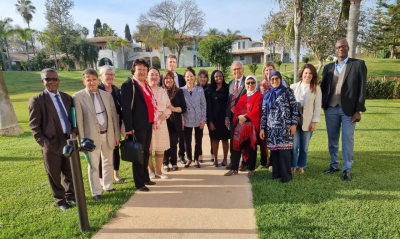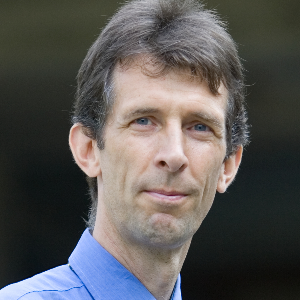


Since 2003, IAP has been implementing a global Science Education Programme (SEP) with the objective of improving science education in primary and secondary schools around the globe. The IAP SEP, led by a Global Council of experts, specifically promotes the inquiry-based science education (IBSE) approach.
On 16 March, members of the IAP SEP Global Council met with invited guests at the headquarters of the Hassan II Academy of Sciences and Technology (H2AST) in Rabat, Morocco, to discuss the latest developments and progress in promoting IBSE, including the results of several small grants provided by IAP for projects in different countries.
Welcome addresses were provided by Omar Fassi-Fehri, Perpetual Secretary of H2AST, and Wafa Skalli, Chair of the IAP SEP Global Council and representative of H2AST, the lead academy of the IAP SEP.
The conference agenda is available here.
In her keynote address, Carol O’Donnell (Director, Smithsonian Science Education Center (SSEC) and IAP SEP Global Council member) highlighted the outputs and impact of the ‘Science for Global Goals’ project to produce community education guides on various topics related to the Sustainable Development Goals (SDGs). From an idea originally proposed at the 2016 IAP SEP Global Council meeting in Chile, SSEC has since collaborated with IAP to produce eight such guides, with three more in preparation. “With our outreach efforts, we estimate to have reached 41,000 educators and 4.7 million students in 88 countries,” said O’Donnell.
In the second keynote address, another IAP SEP Global Council member, R. Indarjani, Dean of the Faculty of Sciences and Technology, As-syafiiyah Islamic University, Jakarta, Indonesia, noted that another resource for teachers prepared by the IAP SEP project, ‘One Belt One Road Fusion of Civilisations Education Curriculum’ has been piloted in China, Indonesia, Malaysia and Pakistan. In Indonesia alone, she said, this resource has been taught to more than 1,100 students, with further presentation paused due to COVID-19. As the resource is also available online, it is expected to reach many others in target ‘Belt and Road’ countries, promoting the concepts of tolerance and respect for other cultures and traditions.
Another IAP SEP Global Council member, Lazzat Kussainova, President of the International Centre for Scientific Collaborations, Kazakhstan, described her efforts, in collaboration with the UNESCO Regional Office in Almaty, to present another IAP publication, ‘Working with Big Ideas in Science Education’ to teachers in Kazakhstan and surrounding countries. Thanks to Kussainova and UNESCO-Almaty, the original book has been translated into Russian and a guide for its practical application by teachers has been developed. Kussainova herself has trained more than 200 teachers in Kazakhstan and Kyrgyzstan.
These guides and other resources for teachers are available here.
Given the location of the event in Morocco, a special session of the conference was dedicated to Africa. Special guest Fouad Chafiqi, Inspector General in charge of pedagogical affairs, Ministry of Education, Preschool and Sports, Morocco, outlined how Morocco had changed its school curricula to focus on IBSE; while Lwidiko Mhamilawa reviewed how Projekt Inspire, an organization that he co-founded, had established a science centre in Dar es Salaam, Tanzania. As well as providing hands-on exhibits for children, the centre in Dar-es-Salaam also includes a ‘Wall of Fame’ that highlights the achievements of members of the Tanzania Academy of Sciences – thus presenting local role models to visitors.
Wafa Skalli then provided an overview of the IAP project to help establish science centres in Africa, for which African scientists have highlighted the need. The proposed Houses of ‘Innovation, Science and Technology’ (ISTEC) aim to impact teachers, students (from preschool to secondary school), scientists from the surrounding area and the general public. Following a call for expressions of interest from academies, five countries were selected by IAP: Benin, Ethiopia, Ghana, Morocco and Sudan. Further discussions of took place the following day during a dedicated session of the IAP SEP Global Council. Plans in all five countries are progressing with concrete support from national authorities, which is essential for their long-term sustainability.
“If we manage to establish five centres and can invite three teachers and their students each day for four years, then we will have reached more than 5,000 teachers and 200,000 children,” informed Skalli. “We really can have an impact on the quality of education of thousands of children. I can think of no other mission that would be more noble - so let us get started!”
The conference closed with a roundtable discussion on ‘How to create win:win situations for science centres/museums’ through such means as sharing technology, information on successful exhibits and initiatives, human resources (including local university students), and linking with virtual museums and common platforms for educational resources.
Abstracts of the presentations highlighted above, plus all the other conference presentations are available here.
Videos of all presentations will soon be available on the IAP YouTube channel.

Morocco’s Hassan II Academy of Sciences and Technology hosted the triennial conference of the IAP Science Education Programme in November 2022.